Hob review
Escapementism.
Hob's world is a mechanism: a beautiful, delicate thing of dials and pulleys and clamps and switches. It is intricate, and it is precise, and as you play through Hob the world you move through is never far from your thoughts. You descend beneath its copper and slate crust at times to slot ancient machinery together. When a gate will not rise, you pace backwards through the grass, following the trail of unlit diodes that will lead you back to a dormant battery that needs charging. You pull things, you twist things, you ram things home. The world is a lock that you are slowly picking, each tiny piece of hard-won progress sending new pins bouncing, or new tumblers turning. No wonder the sword you wield looks like a key.
Oh yes, and there is something more. If the world is a lock, someone has jammed it with bubblegum.
It is hard to think of another game where the basic premise does so much of the work for you. Some games try to make you cry: Press X to hug wife. Oh no, now she's been killed by some baddies! Some games tempt you with the promise of loot, cascades of gold and silver and treasure chests that seem ready to spit jewels at you forever. Hob is not trying to get at your sense of injustice or your greed. It merely presents something beautiful and broken. Coax it back to life, it says. Fix it. It is hard to resist a set-up like this.
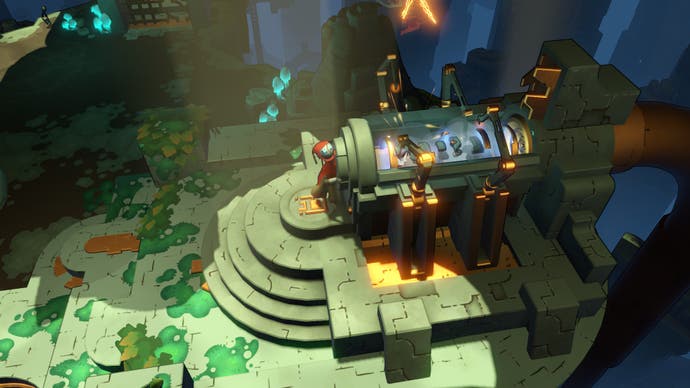
So alongside being dormant, the land has also been infected with a gloopy, bubbly, many-taloned corruption. That beautiful cogwork smothered in ick! Tumours erupting from the clean edges of staircases, from the divots of ancient circuitry. As you restart the landscape, as you fight back the infection, you do the things that heroes often do: you study the map and try to really understand it. You collect doodads that extend your health bar and your magical energy. You improve the strength of your sword. You learn new skills, like the ability to conjure a shield, the ability to zap-dash between metallic nodes, the ability to lash out and hookshot hanging points, so as to scale a wall or remove an enemy's armoured cladding. You get in fights against surprisingly disgusting baddies, all angler-fish jaws and water-boatmen legs.
But that stuff's secondary to the main appeal. In reality, it's you and the landscape, as you twist levers, yank out chains and pound new staircases into the living rock. You spend 15 minutes powering a machine and then you stand at a cliff-face and hear a siren, then feel a rumble beneath your feet, then watch as huge chunks of machined land rush out of the earth, bobbing above you just for a second so you can see beasts toiling in the honeycomb strata. And then these pieces of earth fall back into place - intricately, with great precision - and you are standing at a cliff-face no longer.
Few games have had the mixture of confidence and ability to make this kind of thing work, and that's probably because one game got it so very right a long time ago, and everybody else has either been scared off or has failed to measure up in the detailing. Hob bears a clear debt to The Legend of Zelda: A Link to the Past, the classic 16-bit Zelda that said that the whole world could be a puzzle, and the whole campaign could be spent figuring it out.
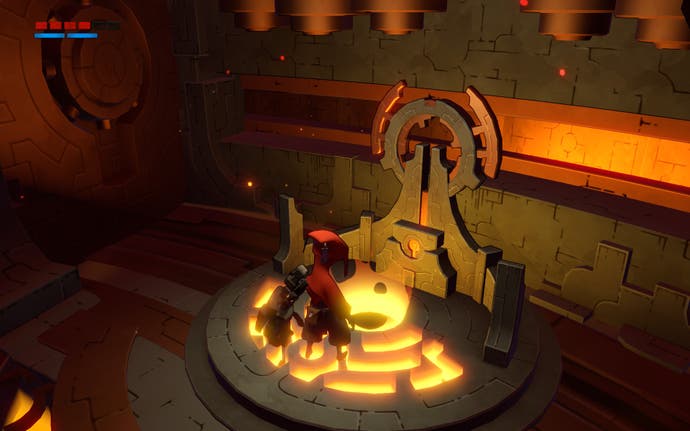
A Link to the Past conjured two different worlds that interlocked: it is hard not to think of the game as a single board that can be flipped over, allowing you to play on both sides. It also broke things down into dungeons and then the general landscape. Hob does neither of these things, although there is some play between the surface and the catacombs beneath it, and there are a handful of set-pieces along the way. Instead, your strange, childlike robo-character, blazing blue eyes moving on concealed servo-motors, one arm lost horribly and replaced with an intricate rock fist, is scurrying across the face of a single giant dungeon, a caretaker as much as an explorer, covering the same territory several times in some cases, lowering a mountain, and then spinning it on its axis, say, and then flooding it so the mountain becomes an island, so the grass returns and the air turns to warm mist. It is an astonishing piece of work.
As you would expect from the makers of a different kind of RPG - Runic Games is the team behind Torchlight, which came from the Diablo lineage, as did many of the team's founding members - combat plays a role, although there is not as much of it as you might be preparing yourself for. Horrible critters scurry over the world, and require timing and patience to dispatch. Some carry shields that can be broken, some lunge with pikes. Success depends upon an understanding of the generous invulnerability period granted by the dash and combat roll, and an understanding of the fact that these leering beasts are as much a danger to themselves as they are to you. Zip in and leap back when faced with a giant and his lieutenants, and there is a decent chance that the giant will accidentally kill his lieutenants on your behalf.
The story Hob tells is both simple and a bit confusing - and it seems to have been mangled slightly by last-minute edits, as in the case of that other great Zelda, The Wind Waker. Still, what remains is generous and stuffed with moments of genuine awe. Hob is a wordless game, but one that is beset by mysteries: even with the campaign finished I am left with a handful of things I don't understand, a selection of locations whose meaning eludes me. I will go back to try to better grasp the things that remain unclear and to rinse the map of heart fragments and upgrades. But I will also go back just to wander over the land I changed so much, and ponder how anybody could have made something like this.
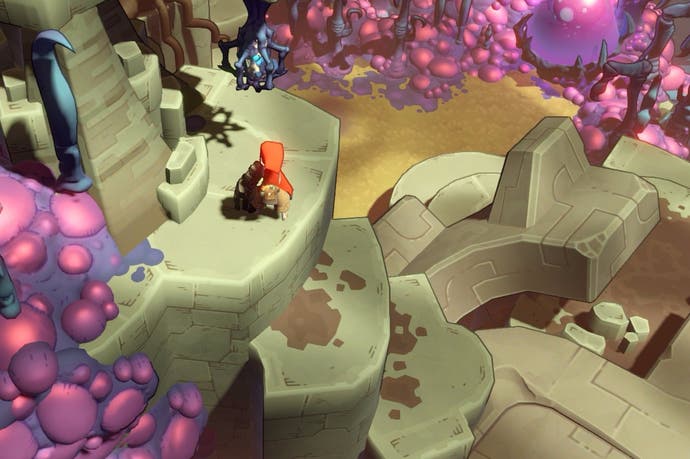



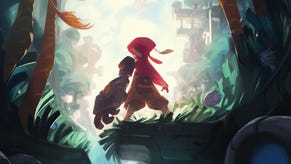
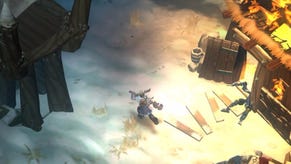
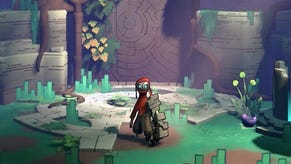
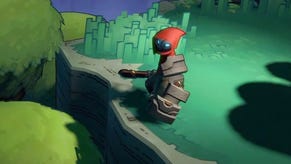
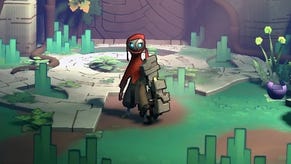
.jpg?width=291&height=164&fit=crop&quality=80&format=jpg&auto=webp)






